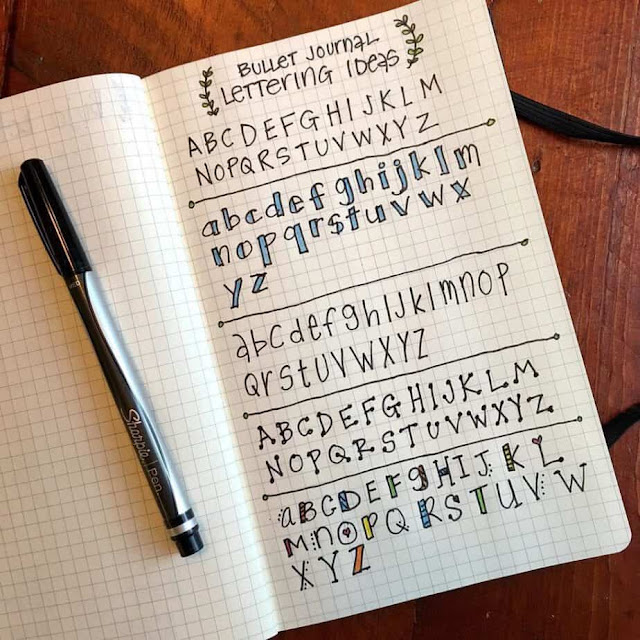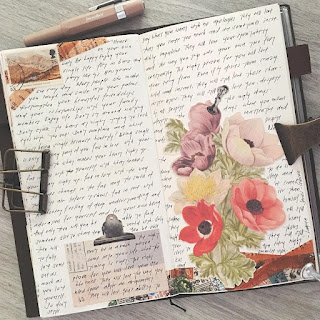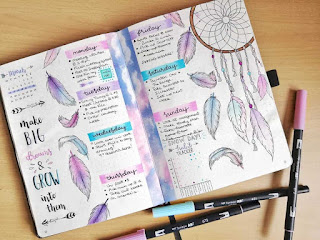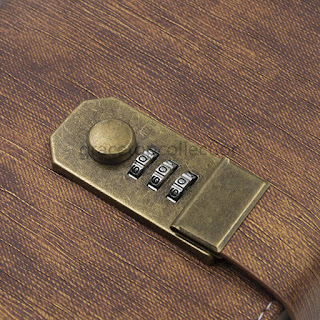Journaling has many benefits, one of which being that it helps you process your thoughts. I did this all the time during college when I couldn't find a safe place to blurt out my thoughts verbally to a friend or alone. It is best to do this while being honest with yourself. What else are journals good for? Let's find out!
 |
| Photo By Committ30 |
Why journal? There are many reasons. You can release your thoughts and process whatever is most bothering you. It helps you manage anxiety and depression, too. Keep in mind that typing it out and ignoring it is not processing it; to process those thoughts you released you have to leave it all out on the page and reread it to identify bad thought habits and what is most stressful. If you are obsessing over something unhealthy it will come out in your journal.
How To Journal
To get the most out of the journaling (typing or pen/pencil) you have to do it at least weekly, if not daily. It unclutters your mind and clears the cobwebs out of your thoughts. Let it all fall onto the page. Then read through it. See anything toxic in those words? See any negative self-talk? See any obsessions that need to be kept in check? Actively work on what concerns you about yourself from there.
Distractions during work happen for me. This internal dialogue that doesn't shut off and takes my mind off my work is best managed by a distraction journal. I put the date, what I remembered I need to do later on, and then move on with my job. This is also ideal for keeping kids busy for the duration of long speeches, services (whether you are in a church or a ceremony), and any time you need kids to be quieter while something is going on.
Idea journals are for writers or artists that have so many ideas we need to carry journals around with us to sketch or jot them down. Inspiration comes at strange times. The muse shows up when you are at your desk working or already have too many projects. We need the idea to come in contact with paper or phone app before we lose it. Generally, we have a million projects going on and will go down the list of ideas as we finish current projects and need more. That idea journal is great for that.
An off-shoot of idea journals is observation journals. Most artists base their art on real people. Writers take characters from real life. Lots of people carry journals and sketchbooks for this purpose. For this reason, I count a book of observations as a journal. People watching may seem odd to some humans, but writers and artists do it all the time.
Another reason people journal is taking notes on games. Gamers who do puzzle games specifically have to or they don't solve the game. I have been creating a walkthrough journal that includes all my Nancy Drew collection in the same notebook. Some gamers created fancy-looking ones with flaps. Others have them in a messy format. It depends on the game and gamer you are looking at.
 |
| Photo By Calendars |
Goal and bullet point journals for organizing are common. You can get fancy stamps, pages, stickers, and pens for it at any craft store that carries them. They are adorable. I also find them to be more like a scrapbook. Adorable, but they take time to make them look cute. If you like that sort of thing, more power to you. Goals are good to document.
Prayer journals are wonderful. You can do this in many ways, including writing your distractions at the top of the page to clear your mind pre-prayer. Basically, you put your requests, God's responses (if any of them came and only if you want), and what you are thankful for. This can double as a gratitude journal. This is also a release of emotion since you can let go of your anxieties and send them God's way. My thought processing journal is in the form of letters to God, so mine is both a prayer and a journaling exercise.
Reflecting On Your Thoughts
How do you reflect on your thoughts constructively? Let me help. WRITE is an acronym that some therapists suggest. W stands for what you want to write about. R stands for review/reflect. I stands for investigate, which you do through your writing. T stands for time, which means spending at least so many minutes writing. E stands for exiting strategically, in short terms summing up the entry and writing any goals you have and steps to take.
Why It Isn't Hard
You can do this anywhere. I have a Word document I spew my words onto when I can't verbalize in front of someone or it isn't a good time to spew my thoughts to God out loud. It is also an option to record yourself on any device and play it back. Paper and pencil, recording, or Word documents are all great options. We all have phones, keep in mind, so you can always have a journal app ready.
No one else's opinion of your thoughts matters. That journal is your private place to let your thoughts fly and no other humans should see it if you don't volunteer it. Do whatever you want with it when it comes to structuring. It can have no structure at all or be so structured that someone with OCD would be satisfied with every page layout. Put little drawings all over it Sonny Joon style, bullet point, color it in calligraphy, destroy it - whatever you want!
 |
| Photo By My Inner Creative |
It doesn't need to be documentation of every detail of your day. It can ignore any aspect of your week and be all about one encounter. Unless you are giving someone a status report on your work progress (and that isn't going to be in a private journal), you don't need to put anything you don't care about in the entry. I am not talking about classwork journals (and believe me, those are a pain when you have a prof. that demands details). Be vague, be so detailed you annoy yourself, be something in between. Be you.
Your journal can easily be a sketchbook, a poetry book, letters, a song, or any form of art. The arts are therapeutic in nature. The release of emotion through words, especially in creative form, helps anxiety. Your journal doesn't have to be in sentences or grammatically correct. No one is grading your journal. This is not for a class or anyone except you. Let your creativity flow.
Nosy People
If you think that someone is going to break into your journal, try code. Adopt a system that you can easily use to encode a message, then put the journal into that. Should you need to switch to different codes to hide your safe space, you'd better just put it under a lock and key with different codes every week. Someone who keeps invading your privacy needs to be confronted. I think they'll get your point when you change into code and change lock combinations weekly. At any rate, go talk to this human and tell them to mind their business.
 |
| Journal with combo lock -Photo by Notebook Post |
Many people want to be all in your business in this world. Find a safe space to journal if you think you'll be interrupted. Lock yourself in a room, if you want. I know what it's like to have people pry into your life, so you aren't alone out there. When it comes to privacy some humans just don't care and want to make your business theirs. Don't let them stop you from journaling. Just make sure you do it somewhere that they can't get access to it. There are some individuals who just want gossip and you should make sure your writing doesn't end up in their hands, especially if they intend to harm you with it. Like I said in the previous paragraph - use code if you need to. You'd be surprised how many people won't bother to decode it. That being said, still keep it somewhere secret if you know that someone wants your private thoughts for malicious reasons.
https://www.urmc.rochester.edu/encyclopedia/content.aspx?ContentID=4552&ContentTypeID=1#:~:text=Now%20it's%20called%20journaling.,and%20improve%20your%20mental%20health.
https://positivepsychology.com/benefits-of-journaling/
https://screening.mhanational.org/content/how-keep-mental-health-journal/
https://thedoctorweighsin.com/can-journaling-improve-your-mental-health/
https://intermountainhealthcare.org/blogs/topics/live-well/2018/07/5-powerful-health-benefits-of-journaling/







Comments
Post a Comment